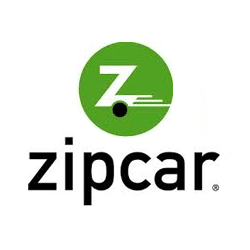
Learn about the Zipcar affiliate program.
Zipcar is a prominent car-sharing service that offers an alternative to traditional car rentals and ownership. It operates on a membership-based system, where individuals and businesses can rent vehicles by the hour or day. Established in the early 2000s, Zipcar has fundamentally changed the landscape of urban transportation by providing a convenient, cost-effective, and environmentally friendly solution to vehicle access.
Origins and Development
In the year 2000, Zipcar was founded by Antje Danielson and Robin Chase. The business concept sprouted from a European car-sharing idea that both founders sought to adapt and refine for the American market. Initially launched in Cambridge, Massachusetts, Zipcar’s business model quickly resonated with consumers, particularly in urban areas and college communities where vehicle ownership could be more of a liability than a convenience. In the following years, Zipcar expanded steadily, entering markets in various cities across the United States.
In the early stage of its development, the company focused on strategically placing vehicles in locations where they would be easily accessible to a large number of people. Zipcar employed a technology-driven approach, utilizing a proprietary platform that facilitated easy reservation, tracking, and billing processes. This emphasis on technological innovation was a hallmark of the company, allowing it to stand out in a crowded transportation sector.
Business Model and Operations
At the core of Zipcar’s business model is the belief in “car-sharing” – a concept wherein individuals gain the benefits of car usage without the costs and responsibilities of ownership. This approach seeks to reduce the overall number of cars on the road, thereby diminishing traffic congestion, decreasing pollution, and conserving resources. Members reserve vehicles through the Zipcar website or mobile app, and use a membership card or the app to unlock and start the vehicle.
Members can choose from various car models, suiting different needs – from compact cars for short city trips to vans for moving larger items. The pricing structure includes a membership fee coupled with hourly or daily rates that encompass insurance, maintenance, and a set amount of miles or kilometers.
Zipcar has also been keen on forging partnerships with universities, businesses, and government organizations to provide transportation solutions that align with their goals. These partnerships often include customized rate plans and vehicle placements, facilitating easy access for members of these organizations.
Expansion and Acquisitions
The year 2007 marked a significant milestone in Zipcar’s history, with the acquisition of Flexcar, a rival car-sharing company. This acquisition allowed Zipcar to expand its footprint considerably, offering services in more cities and adding to its fleet of vehicles. This move not only solidified Zipcar’s position in the market but also allowed for an exchange of best practices between the two companies.
In 2012, Zipcar made its initial public offering, thereby entering a new phase of its corporate journey. However, the pinnacle came in 2013 when it was acquired by Avis Budget Group, a global leader in car rental services. This acquisition has proven to be mutually beneficial, allowing Zipcar to leverage Avis’s extensive infrastructure and resources, and enabling Avis to diversify its portfolio with a robust car-sharing platform.
Impact and Reception
Zipcar’s entry into the market has undeniably made waves in the transportation sector. Its success is partly attributed to the changing consumer preferences, with a growing segment of the population valuing access over ownership. The Zipcar model not only offers a cost-effective solution but also appeals to environmentally conscious consumers who appreciate the potential reduction in carbon emissions that car-sharing can bring about.
Furthermore, the service has been particularly well-received in urban environments where parking space is limited and costly. The convenience of picking up a car in a nearby location, using it for a necessary period, and then returning it without the hassles of maintenance and parking is a clear value proposition for urban dwellers.
Challenges and Future Prospects
Despite its success, Zipcar faces challenges that are inherent to the car-sharing industry. One of the key challenges is the maintenance of its vehicle fleet, ensuring that cars are clean, well-maintained, and readily available when members wish to use them. Additionally, the company operates in a highly competitive environment with several other car-sharing services, traditional car rental companies, and ride-hailing services vying for market share.
Looking ahead, Zipcar has opportunities for further expansion and innovation. The evolving landscape of transportation, characterized by advancements in electric vehicles and autonomous driving technology, presents avenues for Zipcar to integrate these developments into its business model.
Moreover, the company can explore possibilities in enhancing its offerings with complementary services such as delivery or errand services, leveraging its existing fleet and technological infrastructure. Partnerships with other transportation and logistics companies could be a strategic move to create synergies and offer comprehensive mobility solutions to customers.
Analysis
In analyzing Zipcar’s journey and impact on the transportation sector, it is evident that the company has successfully pioneered a car-sharing model that addresses contemporary urban transportation challenges. Its tech-driven approach, combined with a strong focus on customer convenience and environmental sustainability, has made it a preferred choice among a section of the population.
Moreover, Zipcar’s ability to forge strategic partnerships and adapt to changing market dynamics has contributed to its sustained growth over the years. As Zipcar navigates the future, its emphasis on innovation and adaptability will likely continue to be central to its strategy and operations, enabling it to retain a significant position in the evolving transportation landscape.
Therefore, as Zipcar moves forward, it stands as a beacon of innovation in the transportation sector, continually pushing the boundaries of what is possible and leading the way in offering sustainable, convenient, and cost-effective transportation solutions.
Did you know that Zipcar has an affiliate program?
Here is some basic information about what Zipcar is all about. Check it out, and if you are interested there is a link below to access the Zipcar affiliate program.
Zipcar: Car Sharing Alternative for Daily and Hourly Car Rental – Zipcar is the world’s leading car sharing alternative to car rental & ownership. Book cars on demand by the hour or day. Join instantly, drive in minutes.

Miles Anthony Smith
Miles is a loving father of 3 adults, devoted husband of 24+ years, chief affiliate marketer at AmaLinks Pro®, author, entrepreneur, SEO consultant, keynote speaker, investor, & owner of businesses that generate affiliate + ad income (Loop King Laces, Why Stuff Sucks, & Kompelling Kars). He’s spent the past 3 decades growing revenues for other’s businesses as well as his own. Miles has an MBA from Oklahoma State and has been featured in Entrepreneur, the Brookings Institution, Wikipedia, GoDaddy, Search Engine Watch, Advertising Week, & Neil Patel.
For more information about this offer: View the Zipcar homepage


